Business
‘Increase Oversight, Control Money Supply’ — Agora Policy Advises CBN On Taming Inflation
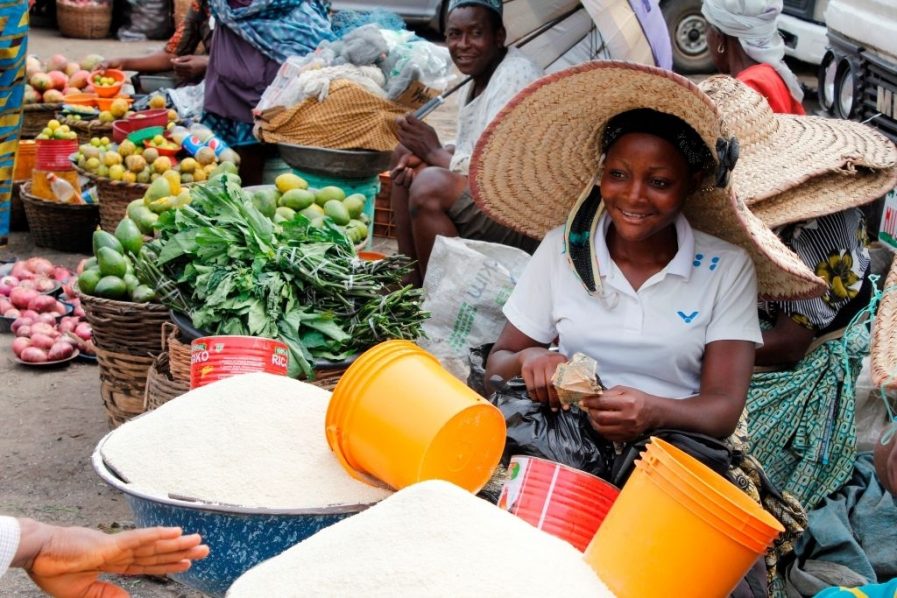
Agora Policy, an Abuja-based think tank, has highlighted ways the Central Bank of Nigeria (CBN) can tame the country’s rising inflation.
The think tank — founded by Waziri Adio, former executive secretary of the Nigeria Extractive Industries Transparency Initiative (NEITI) — made the recommendations in its latest report on Monday.
The consumer price index (CPI), which measures the rate of change in prices of goods and services, rose to 22.41 percent in May, up from 22.22 percent in the previous month.
According to the report, the starting point for the CBN is to recognise the scale of the inflation challenge and the importance of getting the situation under control.
“As long as inflation remains high, every other objective, be it the quest for exchange rate stability or the president’s agenda for increased cheap lending to MSMEs, will be much more difficult to achieve. The CBN needs to remember that its primary monetary policy objective is to keep inflation in check,” the report reads.
“Given that inflation is currently much higher than ideal, the direction of monetary policy has to be to tighten or reduce the growth of money supply. This also means that interest rates will likely have to go up. How far up? At least to the point where “real” interest rates are no longer negative, but maybe even higher.
“These actions to reduce the growth of money supply and increase interest rates are likely to be complicated by all the underhand administrative measures which were put in place to force rates down or to limit money supply growth through the back door.”
The report added that the many administrative measures have proved that the monetary policy rate has recently no longer influenced interest rates either for government securities or at the banks, “making the monetary policy committee effectively meaningless”.
“The unwinding of the ad-hoc cash reserve ratio (CRR) policy, which means money refunded to banks, will also have unintended effects if not managed. The CBN will need to unwind most of these ad-hoc measures,” the think tank said.
“Given the misdirection by the CBN over the last few years, there may be a tendency for the government to want to take closer control of monetary policy.
“This will likely be counterproductive as it has been demonstrated here in Nigeria and in other countries where governments tend to want to use monetary policy for other non-inflation objectives. Which is the underlying problem that the CBN faces today.”
‘STRENGTHEN MONETARY POLICY COMMITTEE, INCREASE OVERSIGHT’
According to the report, a better way forward would be to strengthen the monetary policy committee and place limits on CBN’s actions that fall beyond the scope of its regular actions.
“One option here would be to increase the number of independent members of the committee (currently only four out of 12) and/or reduce the members from the CBN and other government agencies,” the report recommends.
“For instance, there is no real reason why the deputy governor for corporate services, a largely administrative role, should be voting on monetary policy.
“Increased oversight, to ensure that the CBN actually implements the decisions of the monetary policy committee, would also help strengthen the credibility of the CBN.”
‘STOP FINANCING WAYS AND MEANS’
The direct sources of expansion in money supply witnessed over the past decade, specifically the ways and means the financing of the government and the myriad of intervention funds will have to stop, the think tank warned.
“Else, it would be equivalent to removing the plug to drain liquidity from the bathtub while at the same time turning on the taps,” Agora Policy said.
“As demonstrated above, not everything is within the purview of central banks. For instance, supply shocks, which are beyond the remit of central banks, are also known to drive up inflation.
“This in essence means that other actors, such as the governments at both the federal and state levels, can take actions to influence supply positively, which should put downward pressure on prices and therefore reduce inflation.”
Business
Nigeria’s GDP rate grew by 3.46% in Q3 2024, says NBS
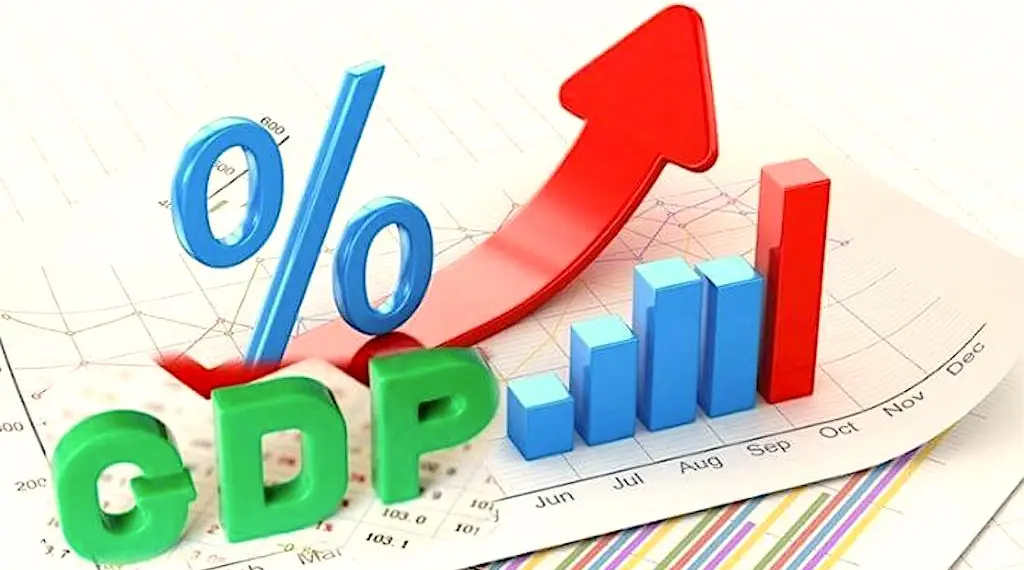
The National Bureau of Statistics (NBS) says Nigeria’s annual gross domestic product (GDP) grew by 3.46 percent in the third quarter (Q3) of 2024.
The NBS, in its GDP report published on Monday, said the growth rate is higher than the 3.19 percent recorded in Q2 2024.
Business
Dangote refinery reduces ex-depot price of petrol to N970 for oil marketers

The Dangote Petroleum Refinery has announced a reduction in its ex-depot price of premium motor spirit (PMS), also known as petrol, to N970 per litre for oil marketers.
This is a cut from the refinery’s N990 ex-depot price announced earlier this month, according to a statement on Sunday.
The slash would help marketers save about N20 on each litre of petrol bought from the Lekki-based plant.
Anthony Chiejina, Dangote Group’s chief branding and communications officer, said the move is the refinery’s way of appreciating Nigerians “for their unwavering support in making the refinery a dream come true”.
“In addition, this is to thank the government for their support as this will complement the measures put in place to encourage domestic enterprise for our collective well-being,” the statement reads.
“While the refinery would not compromise on the quality of its petroleum products, we assure you of best quality products that are environmentally friendly and sustainable.
“We are determined to keep ramping up production to meet and surpass our domestic fuel consumption; thus, dispelling any fear of a shortfall in supply.”
Business
Allegation of missing fund untrue, says Access Bank
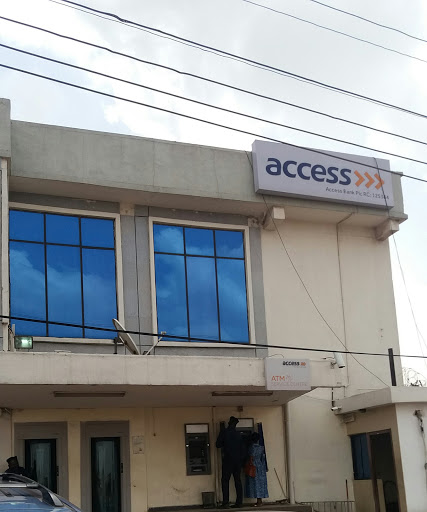
Access Bank Limited has dismissed as untrue allegations of missing fund and unethical behaviour.
The Bank in a statement said: “Our attention has been drawn to a video on social media wherein allegations of missing funds and unethical behaviour have been made against Access Bank PLC.
“First and foremost, we wish to emphasise that the safety and security of our customers’ funds are core priorities which we take seriously. Second, Access Bank Plc does not engage in or condone any unethical behaviour.
“In the instant case, the allegations of missing funds in the Bank are most untrue and baseless.
“There is no N500million or any other fund or amount missing from the subject customer’s account or from any other customer’s account with us.
“We and other independent stakeholders in the banking industry have thoroughly investigated these allegations and independently arrived at the same conclusions.
“Access Bank PLC operates with the highest ethical standards, and we protect our customers’ interests whilst also respecting privacy laws.
“Consequently, whilst we have engaged and will continue to engage with our customers, we must advise the public not to rely on or believe sensational and unverified claims that are designed to titillate and mislead the public.
“We remain committed to serving our customers.”
-

 Business1 week ago
Business1 week agoLagos state government to commence upgrade of major junctions in Ikeja axis, seeks residents’ cooperation
-

 Politics1 week ago
Politics1 week agoDSS operatives arrest man with bags of cash during Ondo guber
-
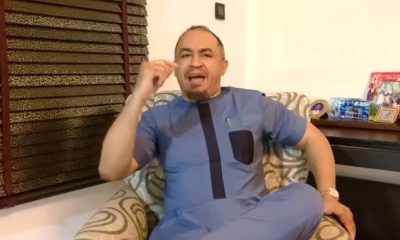
 Celebrities1 week ago
Celebrities1 week agoDaddy Freeze, Akah Nnani clash over Emmanuel Iren
-

 Special Features2 days ago
Special Features2 days agoIyabo Ojo, Brainjotter, Dayo Oketola, Penzaarville, Tomiwa and others to speak at the Bodex Social Media Hangout 5.0
-
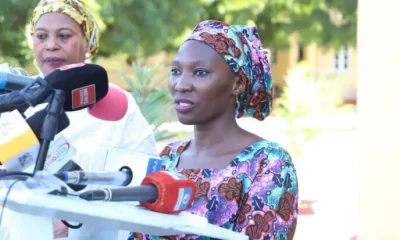
 News1 week ago
News1 week agoAlice Loksha, abducted UNICEF nurse, escapes captivity after 6 years
-

 News1 week ago
News1 week agoNnamdi Emeh: Suspect Facing Charges In Court, Process Independent Of Police Influence
-

 Health1 week ago
Health1 week agoFive ways to rid your home of ants
-

 Politics1 week ago
Politics1 week agoAiyedatiwa takes commanding lead in Ondo guber poll after winning 15 of 18 LGAs


















